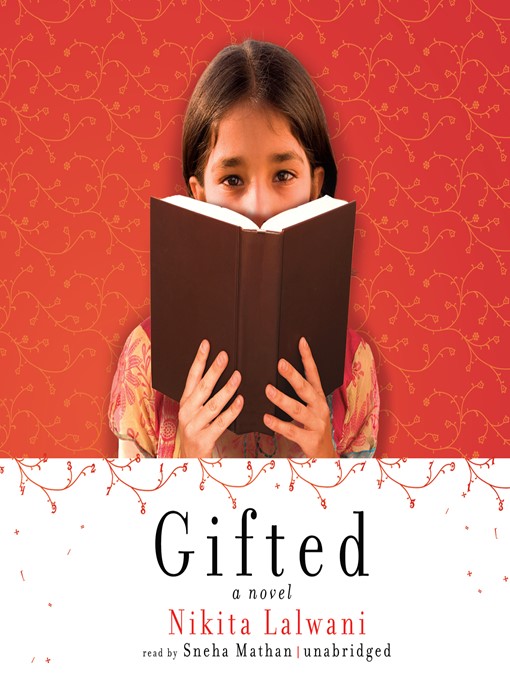
Gifted
A Novel
کتاب های مرتبط
- اطلاعات
- نقد و بررسی
- دیدگاه کاربران
نقد و بررسی

The crisp tones of this narration keep the pace moving forward during what would be an otherwise dry start to this coming-of-age story about a mathematically gifted 14-year-old girl, the daughter of Indian immigrants living in Wales. Narrator Sneha Mathan creates authentic-sounding accents that capture the natural rhythms of various Indian characters speaking English as a second language. Rather than distracting the listener, the accents provide a more authentic atmosphere, particularly in the dialogue between Rumi's parents. Mathan conveys the thoughts of both the adults and the teenager at the novel's center. The story involves complicated math equations, which the main character does often in her mind. Mathan tackles these capably, managing to make them meaningful for the listener. M.R. (c) AudioFile 2010, Portland, Maine

June 4, 2007
In this penetrating coming-of-age debut from London-based Lalwani, 14-year-old Rumika Vasi struggles to fulfill her mathematical gifts and her family's demands on them, while also finding friendship and romance. Rumi, labeled “gifted” in kindergarten, becomes subject to the grim home teaching of her father, Mahesh, a professor of mathematics at the University of Swansea in Wales. The goal: to be accepted to Oxford by age 14. Shreene, Rumi's mother, resentfully accepts the household dominance of Rumi's studies while worrying about how to raise her to be a proper young Indian woman. Rumi longs to be in India, where lots of girls are good at math and where she feels at home among her extended family. The pull of romance is also soon part of Rumi's equation. Lalwani does a nice job with the myriad cultural contradictions: a bewildered Shreene, for example, resorts to “archaic” scripts from her childhood, leading her to tell Rumi that “nly white people have sex” and that Indian babies come from prayer. Well done, too, is Rumi's warm relationship with India. Lalwani doesn't have characterization fully down, but the pain and confusion she presents are deeply felt.

























دیدگاه کاربران